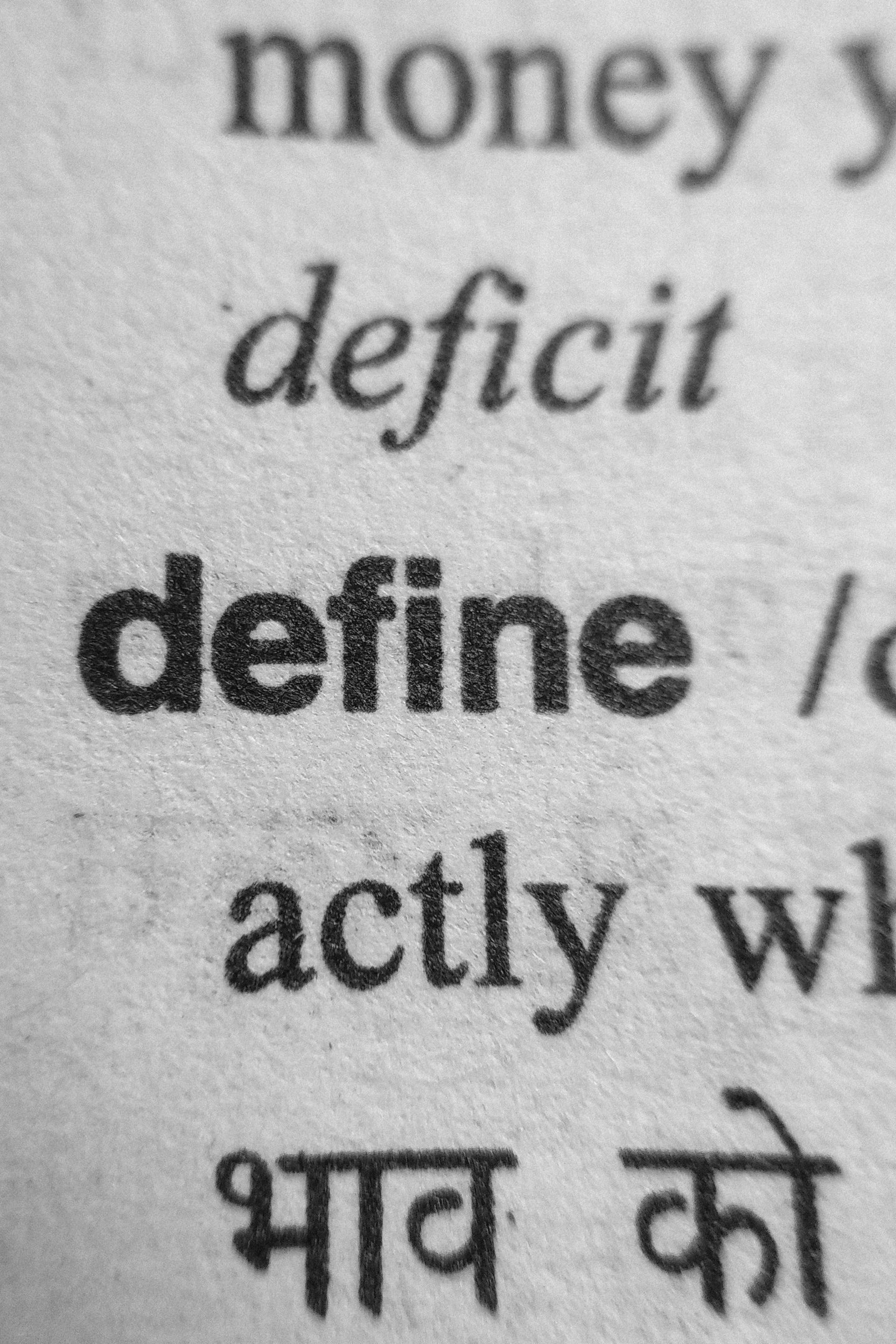
Financial Literacy Glossary
APR- The "Annual Percentage Rate," or in plain English, the price tag on borrowing money. It’s like the fine print of loans and credit cards that tells you how much extra you’ll pay for the privilege of being in debt. Spoiler: the higher the APR, the faster your money disappears.
Asset- Fancy finance lingo for “stuff you own that’s actually worth something.” Could be cash, a house, or that stock everyone told you to buy. No, your collection of limited-edition Funko Pops doesn’t count—unless someone’s willing to pay for it.
Budget - A guilt-inducing spreadsheet that reminds you you're spending too much on takeout and subscriptions you forgot you had. It's the plan you swear you’ll stick to—until payday rolls around and that “treat yourself” energy kicks in.
Capital - A fancy word for "money," but it sounds more important. It’s the cash or assets you use to make more money—because apparently, in the financial world, it takes money to make money. Translation: no capital, no party.
Credit - The magical power to buy stuff you can’t actually afford, all while a three-digit score decides if you’re “trustworthy” enough to borrow more. Use it wisely, or end up paying $5,000 for that $500 couch because of interest.
Credit Score - Your financial reputation boiled down to a three-digit number that rules your life. It’s like a popularity contest, but instead of getting prom queen, you get approved—or denied—for loans. Pay late once? Boom, you’re out. Play nice? Maybe you’ll get a gold star and lower interest rates.
Compound Interest - The magical money multiplier that makes your savings grow faster than your caffeine addiction. It’s like interest earning interest—basically, the closest thing to free money if you’re patient enough to let time do its thing. Too bad it works against you if you’re drowning in debt.
Debt - The grown-up version of borrowing money to buy stuff you might need but probably don't. It’s the financial ball-and-chain that keeps you working longer and harder, all so you can pay back that vacation you took three years ago and still haven’t fully enjoyed.
Debt Avalanche - A badass method to crush your debt by tackling the highest interest rates first. Think of it as the snowball's cooler, more efficient sibling—less warm and fuzzy, more “let’s annihilate that 20% credit card balance before it eats you alive.
Debt Snowball - The feel-good method of paying off debt by starting with the smallest balances first. It’s less about math and more about giving yourself a high-five every time you knock out a tiny bill—because who doesn’t love the illusion of progress while ignoring those sky-high interest rates?
Debt-to-Income (DTI) - The financial reality check that shows how much of your income is being eaten up by debt. If your DTI is high, congratulations, you’re basically working to pay off your past bad decisions. The lower the number, the less likely you’ll be drowning in monthly payments.
Inflation - The sneaky villain that makes your money worth less every year. Remember when coffee was $1? Yeah, now it’s $5, and your paycheck didn’t get the memo. It’s the reason your savings account is basically a sad joke if you’re not investing.
Expense - The black hole where your hard-earned money goes to disappear. Whether it’s rent, utilities, or your “essential” streaming subscriptions, expenses are life’s constant reminder that nothing comes for free—except disappointment.
FICO - The almighty four-letter acronym that controls your financial fate. It stands for "Fair Isaac Corporation," but really, it’s just the company that decides your credit score—and, by extension, whether you’re deemed worthy of adulting properly. Mess up, and FICO will haunt you for years.
Income - The money you bust your butt to earn, only to watch it vanish into bills, taxes, and that overpriced latte habit you swear you’ll quit. It’s the lifeblood of your finances—use it wisely, or kiss it goodbye.
Interest - The price tag for borrowing money or the reward for letting someone else borrow yours. When you’re earning it, interest feels like a genius move. When you’re paying it, it feels like a scam you willingly signed up for.
Liability - The financial baggage dragging you down. It’s anything you owe—like loans, credit card balances, or that “friendly” IOU to your cousin. Basically, the opposite of an asset and a constant reminder that money doesn’t grow on trees.
Net Worth - The ultimate scoreboard of your financial life. It’s the difference between what you own (yay, assets!) and what you owe (ugh, liabilities). Positive net worth? You’re winning. Negative net worth? Congrats, you’re technically worth less than your couch.
Return on Investment (ROI) - The grade you give your money for how hard it’s working. If you invest $100 and get $150 back, congrats—your money gets an A+. If you lose half of it, well, your investment just flunked out of Money School.
Time Value of Money -The fancy finance way of saying “a dollar today is worth more than a dollar tomorrow.” Why? Because you could invest it, grow it, or, let’s be real, blow it on something fun right now. Waiting just lets inflation steal the party.
Wealth - The grade you give your money for how hard it’s working. If you invest $100 and get $150 back, congrats—your money gets an A+. If you lose half of it, well, your investment just flunked out of Money School.
Stay Unruly my friends
Unruly Intellectual © 2024. All rights reserved.


